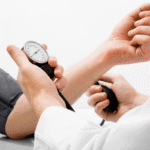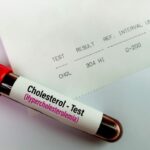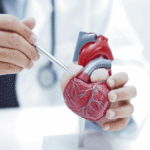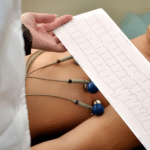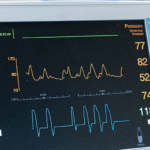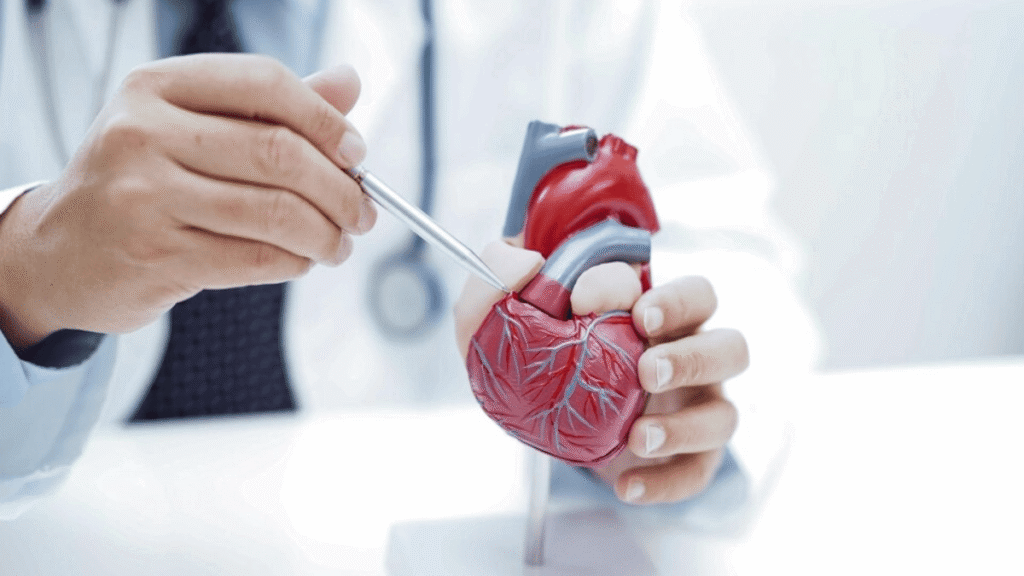Coronary Heart Disease (CHD), also known as Coronary Artery Disease (CAD), is a condition where the arteries supplying blood to the heart muscle become narrowed or blocked by plaque buildup. This reduces blood flow, potentially leading to chest pain (angina) or a heart attack. Individuals at risk include older adults, those with a family history of CHD, and those with unhealthy lifestyle habits. Early diagnosis and treatment are crucial to prevent serious cardiac events and improve long-term heart health.
Causes & Risk Factors
The primary cause of CHD is atherosclerosis, the buildup of plaque within the coronary arteries. This plaque consists of cholesterol, fatty substances, and other cellular debris. Genetic predisposition can increase susceptibility. Major risk factors include smoking, high blood pressure, high cholesterol, diabetes, obesity, and a sedentary lifestyle. These factors contribute to the development and progression of atherosclerosis.
Symptoms
Symptoms of CHD can vary. Angina, characterised by chest pain or discomfort, is a common symptom. This pain may radiate to the left arm, shoulder, jaw, or back. Shortness of breath, fatigue, and palpitations can also occur. Mild CHD may only cause symptoms during exertion, while severe CHD can cause symptoms even at rest. If you experience sudden, intense chest pain, especially accompanied by shortness of breath, sweating, or nausea, seek immediate medical attention as it could signal a heart attack.
Diagnosis
Diagnosing CHD involves a combination of medical history, physical examination, and diagnostic tests. An Electrocardiogram (ECG) can detect abnormalities in heart rhythm or signs of previous heart attacks. Blood tests can assess cholesterol levels, blood sugar, and other markers of heart health. Exercise stress tests can evaluate heart function during physical activity. Coronary Angiography, a specialised X-ray, provides detailed images of the coronary arteries to identify blockages. Early detection allows for timely intervention and prevention of complications.
Treatment Options
Treatment for CHD aims to relieve symptoms, slow disease progression, and reduce the risk of future cardiac events. Lifestyle changes are fundamental, including a heart-healthy diet low in saturated fats, regular exercise, and smoking cessation. Medications like statins (to lower cholesterol), beta-blockers (to control heart rate), and antiplatelet drugs (to prevent blood clots) are commonly prescribed. In severe cases, procedures such as angioplasty (to widen narrowed arteries) or coronary artery bypass surgery may be necessary.
Complications & Risks
Untreated CHD can lead to serious complications, including heart attack, heart failure, and sudden cardiac arrest. The reduced blood flow to the heart muscle can cause irreversible damage. Chronic CHD can significantly impact quality of life, limiting physical activity and causing emotional distress. It’s essential to manage CHD effectively to minimise these risks.
Prevention & Management
Preventing CHD involves adopting a heart-healthy lifestyle. This includes maintaining a healthy weight, eating a balanced diet rich in fruits and vegetables, exercising regularly, and avoiding smoking. Regular check-ups with your doctor are crucial for monitoring blood pressure, cholesterol levels, and other risk factors. Managing underlying conditions like diabetes is also essential. Regular monitoring and adherence to treatment plans are vital for managing existing CHD.
If you’re concerned about chest pain, heart health, or have risk factors for CHD, it’s important to seek medical advice. Our experienced cardiologists offer comprehensive evaluations, accurate diagnoses, and personalised treatment plans to help you manage CHD and improve your heart health. Don’t let coronary heart disease dictate your life. Schedule a consultation today and take control of your cardiac health.

